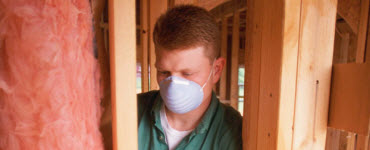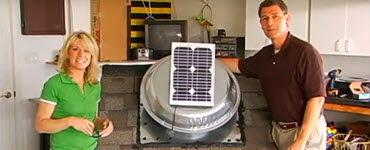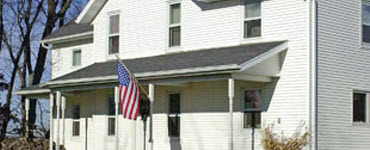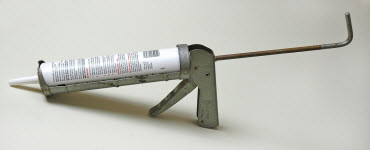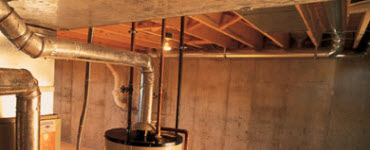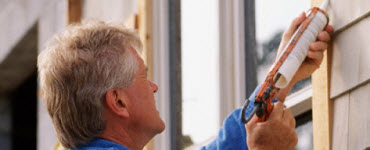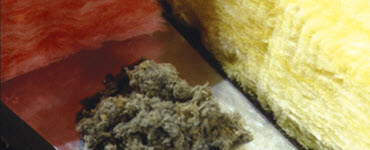Vapor barriers and ventilation
An energy-tight home requires adequate ventilation and vapor control to maintain healthy air.
As you plan your home building project, keep in mind that it's also important to use vapor barriers and ventilation to maintain a healthy balance of air and moisture movement throughout your home.
This condensation can rot wood framing, blister paint, ruin insulation and damage the roof. Vapor barriers installed between insulation and interior surfaces can help prevent this problem.
Your builder should use insulation faced with kraft-paper or reflective foil, and/or install four- or six-millimeter thick polyethylene.
An unventilated (or under-ventilated) attic can trap heat in the summer months, raising the indoor temperature by several degrees and putting a strain on your air conditioner. During the winter, warmer air trapped in the attic can condense under the roof, causing ice dams that can lead to serious roof damage.
Attic vents can be positioned in several ways. New homes built in the Midwest usually have a combination of continuous ridge and soffit vents.
Another option for controlling moisture is a energy recovery ventilator. Your builder can help you decide which method is best for your new home.
Vapor barriers
During cold weather, water vapor from the warm inside air travels through unsealed holes and cracks, and condenses on cooler surfaces, including exterior walls, the underside of the roof and within insulation.This condensation can rot wood framing, blister paint, ruin insulation and damage the roof. Vapor barriers installed between insulation and interior surfaces can help prevent this problem.
Your builder should use insulation faced with kraft-paper or reflective foil, and/or install four- or six-millimeter thick polyethylene.
Ventilation
It may seem like attic vents defeat the purpose of insulation, but they're a vital part of keeping fresh air circulating throughout your home.An unventilated (or under-ventilated) attic can trap heat in the summer months, raising the indoor temperature by several degrees and putting a strain on your air conditioner. During the winter, warmer air trapped in the attic can condense under the roof, causing ice dams that can lead to serious roof damage.
Attic vents can be positioned in several ways. New homes built in the Midwest usually have a combination of continuous ridge and soffit vents.
Another option for controlling moisture is a energy recovery ventilator. Your builder can help you decide which method is best for your new home.
More from this category
Spray foam insulation
Spray foam insulation does a great job of sealing up cracks and crevices, if it's installed properly. Learn more about open-cell spray foam options.
Solar attic fan
Finding and sealing air leaks
Weatherizing tips & tricks
Use this checklist to make sure you don't overlook hidden energy wasters in and around your home.
Basements and crawlspaces
Insulating your new house's basement up to R-10 can help reduce energy costs by up to 12 percent.
Weatherizing materials
A typical home will need about $50 in weatherizing materials - and the cost can be paid back in energy savings in just a few weeks.
Insulation options
The right insulation material for your home depends on where it will be used and what type you already have.

